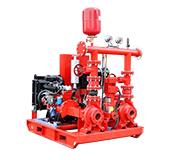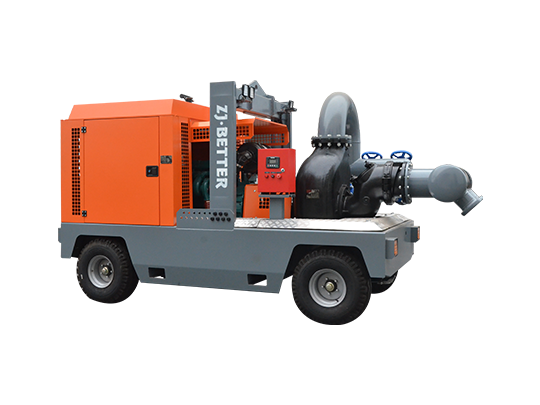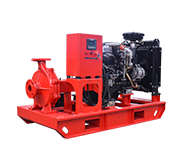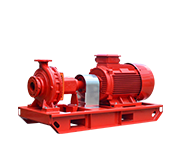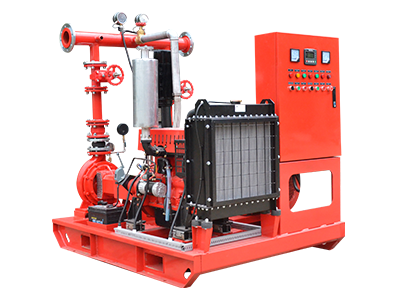- Fire Pump System
-
- UL-Listed Fire Pump SetEDJ End Suction Fire Pump SetEDJ Fire Pump SetEJ Small Flow Fire Pump SetFire Pump PackagesContainerized fire pump setDiesel Fire Pump SetED Small fire pump setElectric Jockey Fire Pump SetFire Pump Set with Jockey PumpFire Pump SystemSplit Case Fire Pump SetMutistage EDJ Fire Pump SetDiesel Fire Pump Set with Jockey PumpFire Fighting Pump SystemElectric Diesel Jockey Fire Pump SetFire Fighting Pump Set with Jockey PumpSmall Capacity Electric Fire Pump SetDJ Fire Pump Set with Jockey PumpEJ Fire Pump SetED Fire Pump Set (Electric+Diesel pump)Diesel Engine Fire Pump SetDiesel Fire Jockey PumpSmall Fire Pump SetEDJ Fire Pump SystemFire Water Pump SetFire Pump AssemblyDJ Small Flow Fire Pump SetCummins Engine Fire Pump Set
- Mobile Pump Unit
-
- Split Case Series Mobile Pump TruckSelf Priming Series Mobile Pump TruckCentrifugal diesel driven dewatering pumps open frame trailerFlow-mixing Mobile Pump TruckFlow-mixing Mobile Pump TruckManure Pump TruckP12 modle mobile Pump truckP10 Modle Mobile Pump Truck1000m³Self Priming Series Mobile Pump TruckLarge Flow Non-Clogging Mobile Fire Pump TrailerTrailer Mounted Fire PumpFire Emergency Mobile Pump TruckDiesel Engine Emergency Mobile Trailer Pump
- Diesel Fire Pump
-
- UL Listed Diesel End Suction Fire PumpXBC-S Diesel Split Case Fire PumpXBC-IS Diesel End Suction Fire PumpXBC-D Diesel Multistage Fire PumpVertical Turbine Diesel Engine Fire PumpDiesel Engine Single-Stage Centrifugal PumpXBC-IS Diesel End Suction Fire Fighting PumpXBC-S Diesel Engine Split Case Fire PumpDiesel Engine End Suction Fire PumpXBC-IS Diesel End Suction Fire PumpsZWC Diesel Engine Self Priming Pump for IrrigationDiesel Engine End Suction Fire Fighting PumpXBC-S Heat Exchange Diesel End Suction Fire PumpXBC-XA Diesel Engine End Suction Fire PumpXBC-IS Diesel Engine Fire PumpDiesel Engine End Suction Fire PumpXBC-IS Diesel Engine End Suction Fire PumpXBC-ISO Diesel Fire Fighting PumpPortable Fire PumpFire Booster Pump

Email: zjbetter@119pump.com
Tel:+86 15336708022(Gloria) +86 13306708055 (Ivy) +86 13357006058 (Serena) +86 13357022877 (Wendy) +86 17757009882(Kate)
Fax:0086-570-3010238
-
What role do maintenance and testing play in ensuring the reliability of fire pump systems?
Maintenance and testing are integral components of fire pump system management, ensuring the system's reliability and performance during a fire emergency. Regular maintenance activities include inspecting pump components, lubricating moving parts, checking for leaks or corrosion, testing electrical systems, and verifying alignment and coupling integrity. Additionally, periodic testing of the fire pump system is necessary to confirm its operational readiness. This includes conducting flow tests to verify flow rate and pressure, running full-load tests to assess pump performance under simulated fire conditions, and conducting annual or quarterly tests as required by regulations and standards. Maintenance and testing should be performed by qualified personnel following manufacturer recommend
View more +
-
How do water supply requirements influence fire pump selection and design?
The availability and reliability of the water supply are critical factors in determining the size, capacity, and design of fire pump systems. Adequate water supply must be ensured to meet the demands of the sprinkler system, considering factors such as water pressure, flow rate, and duration of supply. Where municipal water supply is insufficient, alternative water sources such as dedicated fire water storage tanks or on-site reservoirs may be required, necessitating additional considerations in pump selection and design.
View more +
-
What are some common challenges faced during the installation of fire pump systems?
Installation of fire pump systems can present various challenges, such as selecting the optimal location for the pump and associated equipment, coordinating with other trades involved in the construction process, ensuring compliance with building codes and regulations, and navigating logistical constraints such as space limitations and access for maintenance. Effective project management and collaboration among stakeholders are essential to overcome these challenges and ensure a successful installation.
View more +
-
What are the implications of NFPA standards on fire pump installation and maintenance?
NFPA standards, particularly NFPA 20, play a crucial role in guiding the installation, operation, and maintenance of fire pumps. Compliance with these standards ensures that fire pump systems are designed and maintained to meet safety requirements and perform effectively during emergencies. It's essential for building owners, facility managers, and fire protection professionals to stay updated on the latest revisions to NFPA standards and incorporate them into their practices.
View more +
-
What are some key performance metrics for evaluating fire pumps?
Performance metrics for evaluating fire pumps include flow rate, pressure rating, efficiency, reliability, and response time. Flow rate refers to the volume of water delivered per unit of time, while pressure rating indicates the force at which water is discharged. Efficiency measures how effectively the pump converts energy into hydraulic power, and reliability reflects the pump's ability to operate consistently without failure. Response time is the duration it takes for the pump to activate and reach operational pressure upon detection of a fire.
View more +
-
What are jockey pumps, and why are they used in conjunction with fire pumps?
Jockey pumps are small, high-pressure pumps installed in conjunction with fire pumps to maintain the pressure in the fire protection system's piping network. They operate automatically to compensate for minor pressure fluctuations and ensure that the system remains pressurized for immediate response during a fire event.
View more +
-
What factors determine the size and capacity of a fire pump?
The size and capacity of a fire pump are determined by various factors, including the size of the building or area to be protected, the required flow rate and pressure for the sprinkler system, the available water supply, and local fire codes and regulations.
View more +
-
What are the regulations and standards governing fire pumps?
Fire pumps are subject to various regulations and standards, including NFPA (National Fire Protection Association) standards such as NFPA 20, which provides guidelines for the installation, operation, and maintenance of fire pumps.
View more +
-
Who should install and maintain fire pumps?
Fire pumps should be installed and maintained by qualified professionals with expertise in fire protection systems. This may include licensed fire protection engineers, contractors, or technicians trained in fire pump installation and maintenance.
View more +
-
What are the considerations for selecting the appropriate control logic and sequencing for electric fire pump systems?
Selecting the appropriate control logic and sequencing for electric fire pump systems is essential for ensuring safe and efficient operation during fire emergencies. Control logic refers to the programmed sequence of operations that governs how the fire pump system responds to various input signals and conditions, such as fire alarms, system pressure levels, and pump status. Sequencing involves determining the order in which pumps, valves, and other system components are activated or deactivated to achieve the desired water flow and pressure levels. Considerations when selecting control logic and sequencing include compliance with regulatory requirements and industry standards, coordination with other building systems such as fire alarms and sprinklers, and customization to meet the specif
View more +
-
What are the considerations for selecting the appropriate seismic design criteria for electric fire pump installations in earthquake-prone regions?
In earthquake-prone regions, selecting the appropriate seismic design criteria for electric fire pump installations is crucial to ensure the structural integrity and reliability of the system during seismic events. Considerations include compliance with local building codes and regulations related to seismic design, evaluation of site-specific seismic hazards such as ground motion, soil liquefaction, and fault proximity, and implementation of seismic bracing and anchorage measures to secure the pump, piping, and electrical components. Seismic design criteria may also include requirements for the use of flexible couplings, expansion joints, and vibration isolation mounts to mitigate the effects of seismic forces on the pump system. Working with experienced engineers and seismic design profe
View more +
-
What are the considerations for selecting the appropriate fire pump performance standards for electric fire pump systems?
When selecting fire pump performance standards for electric fire pump systems, it's essential to consider factors such as regulatory requirements, building code compliance, industry best practices, and the specific needs and characteristics of the application. Common performance standards for fire pumps include NFPA 20 (Standard for the Installation of Stationary Pumps for Fire Protection), which provides guidelines for the design, installation, testing, and maintenance of fire pump systems. Other standards such as UL 448 (Standard for Electric Fire Pump Controllers), UL 1008 (Standard for Transfer Switch Equipment), and NFPA 25 (Standard for the Inspection, Testing, and Maintenance of Water-Based Fire Protection Systems) may also be applicable depending on the jurisdiction and project re
View more +
-
What are the considerations for selecting the appropriate location for installing electric fire pump controllers?
Selecting the appropriate location for installing electric fire pump controllers is essential for ensuring easy access, proper ventilation, and protection from environmental factors. Controllers are typically installed in a dedicated control room or enclosure adjacent to the pump assembly. Factors to consider when selecting the location include proximity to the pump motor and electrical supply, accessibility for maintenance and servicing, compliance with local building codes and regulations regarding electrical equipment installation, and considerations for noise levels and vibration. Additionally, the control room or enclosure should be adequately ventilated to prevent overheating of electrical components and provide sufficient space for personnel to operate and maintain the controllers.
View more +
-
What are the considerations for selecting the appropriate fire pump testing equipment and procedures?
Selecting the appropriate fire pump testing equipment and procedures is essential for verifying the performance and compliance of electric fire pump systems with regulatory requirements and industry standards. Testing equipment may include flow meters, pressure gauges, tachometers, and load banks for conducting functional tests and performance evaluations. Procedures for testing fire pumps typically follow guidelines outlined in NFPA 25 (Standard for the Inspection, Testing, and Maintenance of Water-Based Fire Protection Systems) and NFPA 20 (Standard for the Installation of Stationary Pumps for Fire Protection), as well as manufacturer recommendations. Considerations when selecting testing equipment and procedures include accuracy, calibration, safety measures, and documentation requireme
View more +
-
Are there any considerations for selecting the appropriate backup power source for electric fire pumps?
Selecting the appropriate backup power source for electric fire pumps is essential to ensure continued operation during power outages or emergencies. Common backup power sources include diesel generators, battery backup systems, and uninterruptible power supplies (UPS). Factors to consider when selecting a backup power source include reliability, fuel availability, runtime capacity, startup time, noise levels, emissions, and compliance with regulatory requirements. Backup power systems should be properly sized and configured to provide sufficient power to operate the electric fire pump and associated systems for the required duration during an outage.
View more +
-
What are the considerations for selecting the appropriate fire pump controller for an electric fire pump system?
The fire pump controller plays a critical role in the operation, monitoring, and protection of electric fire pump systems. When selecting a fire pump controller, factors to consider include compatibility with the pump motor and control panel, compliance with relevant standards and regulations, built-in features such as overload protection, phase reversal detection, and fault diagnostics, and user interface options for ease of operation and monitoring. Additionally, fire pump controllers should be capable of integrating with building management systems (BMS) or supervisory control and data acquisition (SCADA) systems for centralized monitoring and control of fire pump operations.
View more +
-
What are the considerations for selecting the appropriate motor for an electric fire pump?
Selecting the appropriate motor for an electric fire pump is essential for ensuring reliable and efficient operation. Factors to consider include motor horsepower, voltage and phase requirements, efficiency ratings, starting and running characteristics, ambient temperature ratings, and compliance with relevant motor standards and regulations. The motor should be sized appropriately to match the hydraulic demands of the fire protection system and should be compatible with the pump and control system components.
View more +
-
How do electric fire pumps contribute to overall fire safety and building code compliance?
Electric fire pumps play a critical role in ensuring the effectiveness of fire protection systems and helping buildings comply with fire safety regulations and building codes. By providing a reliable and pressurized water supply to sprinkler systems, standpipes, and other fire suppression equipment, electric fire pumps help control and extinguish fires, minimize property damage, and protect occupants. Compliance with standards such as NFPA 20 and local building codes ensures that electric fire pump systems meet specific design, installation, and performance requirements, helping to enhance overall fire safety within buildings and facilities.
View more +
-
What are the considerations for selecting the appropriate control panel or pump controller for an electric fire pump system?
The control panel or pump controller plays a critical role in the operation and monitoring of electric fire pump systems. When selecting a control panel, factors to consider include compatibility with the pump motor and other system components, integration capabilities with building automation or fire alarm systems, user interface features for ease of operation and monitoring, built-in diagnostics and fault detection capabilities, and compliance with relevant industry standards and regulations. Choosing the right control panel ensures efficient and reliable operation of the electric fire pump system.
View more +
-
What are the considerations for selecting the appropriate piping material for connecting electric fire pumps to the fire protection system?
Selecting the right piping material is crucial for ensuring the efficient and reliable operation of electric fire pumps. Common piping materials include steel, ductile iron, copper, and various types of plastics such as PVC and CPVC. The choice of piping material depends on factors such as the water supply source, the required flow rate and pressure, compatibility with the pump and other system components, corrosion resistance, cost considerations, and compliance with relevant standards and codes. Conducting a thorough evaluation of these factors can help determine the most suitable piping material for the specific application.
View more +
-
How do electric fire pumps compare to other types of fire pump systems, such as diesel-driven pumps or jockey pumps?
Electric fire pumps offer distinct advantages and disadvantages compared to other types of fire pump systems. While diesel-driven pumps provide a reliable backup power source and are suitable for locations with unreliable electricity supply, they require onsite fuel storage and produce emissions. Jockey pumps, on the other hand, are used to maintain pressure in fire protection systems but are not capable of providing the high flow rates required during a fire emergency. Electric fire pumps, with their consistent performance, ease of maintenance, and environmental friendliness, are often preferred for many applications where reliable electric power is available.
View more +
-
How can users ensure the long-term reliability and performance of electric fire pumps beyond the initial installation?
Ensuring the long-term reliability and performance of electric fire pumps requires a proactive approach to maintenance, monitoring, and continuous improvement. This may involve implementing a comprehensive maintenance program that includes regular inspections, testing, and preventive maintenance tasks, maintaining accurate records of maintenance activities and performance data, investing in training and development for personnel responsible for operating and maintaining the pumps, and staying updated on industry best practices and technological advancements. Additionally, establishing a relationship with a trusted service provider or manufacturer can provide access to expert support and guidance throughout the lifecycle of the pump system.
View more +
-
What are the best practices for testing electric fire pumps to ensure they are in proper working condition?
Testing electric fire pumps regularly is crucial to verify their functionality and readiness in the event of a fire emergency. Best practices for testing may include conducting weekly or monthly visual inspections, performing quarterly or semi-annual functional tests, and conducting annual full-load tests. These tests typically involve simulating various operating conditions to ensure the pump operates as intended and delivers the required flow and pressure.
View more +
-
What are the potential consequences of neglecting maintenance or testing of electric fire pumps?
Neglecting maintenance or testing of electric fire pumps can have serious consequences, including pump failure during a fire emergency, inadequate water flow or pressure to the fire protection system, non-compliance with regulatory requirements, and increased risk to life and property. Regular maintenance and testing are essential to ensure the reliability and effectiveness of electric fire pumps in protecting against fire hazards.
View more +
-
Can electric fire pumps be retrofitted into existing fire protection systems?
Yes, electric fire pumps can often be retrofitted into existing fire protection systems to replace outdated or inefficient pump systems. However, careful planning and evaluation are necessary to ensure compatibility with existing infrastructure, proper sizing, and compliance with regulatory requirements.
View more +

